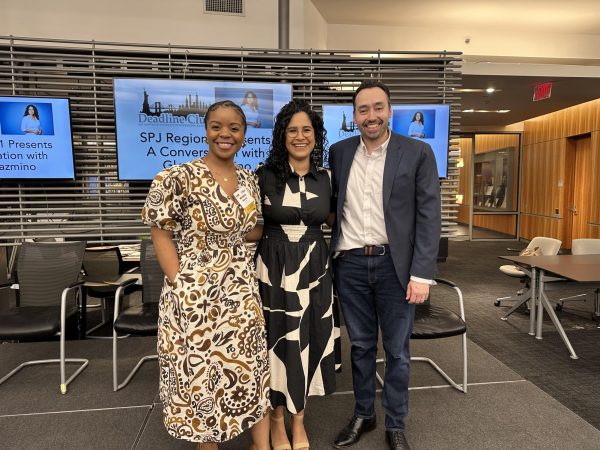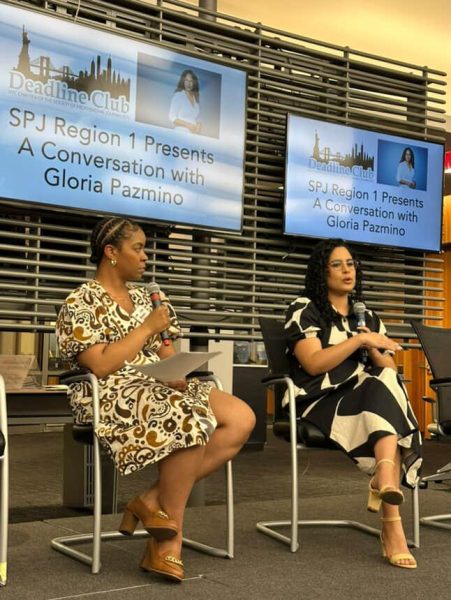CNN correspondent Gloria Pazmino encouraged student journalists, including several from William Paterson, to “bring your life experiences to the newsroom” on Friday during a journalism conference organized by a William Paterson professor.

Speaking at the Society of Professional Journalists’ Region 1 conference in New York, Pazmino said she just “fell in love with” local journalism.
“I knew I wanted to be a journalist since I was a little girl, and part of the reason that I wanted to go into journalism was because I really wanted to tell stories,” Pazmino said in an interview with SPJ Region 1 coordinator Michelle Watson, who introduced her as a “proud New Yorker, a bilingual journalist and a storyteller committed to truth, context and accountability.”
“Through high school newspapers, I really got involved with journalism,” Pazmino said. “One of my first jobs was at a very tiny local newsroom in Washington Heights, which is a neighborhood in Manhattan, and it was my job to cover the neighborhood. I made very little money.”
“I would say my first big story was Hurricane Sandy here in New York City. We never had a weather event like Hurricane Sandy in New York City ever before,” she said. “And it was also happening right in my backyard. Right in the city where I grew up. So that was a tough but great learning experience. It was really kind of the first time I felt like I was in the middle.”
Pazmino also discussed how journalism sometimes struggles between the ideas of objectivity and personal views. “It’s expected that we should not bring up personal views or experiences,” she said. “But I think there are certain settings through which you lived that helped you to shape your ideas. As a journalist, the things that I want to cover are those that I’m interested in. So I cover immigration and racial policy.”
“I think that whatever your life experience might be, you just should bring that into your work,” she continued. “I think that can ultimately be for the better. I think it can make you a better reporter, a better journalist, a better researcher, rather than feeling like you have to separate your lived experience from your job.”

“I think that whatever your life experience might be, you just should bring that into your work,” she continued. “I think that can ultimately be for the better. I think it can make you a better reporter, a better journalist, a better researcher, rather than feeling like you have to separate your lived experience from your job.”
“Now we hear more than ever before about the importance of diversity and the importance of diverse news for you, but I think in addition to that, diversity of lived experience is also really important,” Pazmino said. “Because I think it’s important to bring different perspectives into newsrooms. I think it makes us better journalists, better researchers.”
Stressing upon the arts of local journalist, Pazmino said, “Suppose you are covering a community that’s having an issue with water. Maybe there’s lead in the water, and we’re trying to figure out what’s happening to the children in this community as a result of the lead that’s in the water, and it needs to be held accountable.
“So understanding how communities and cities work, I think it’s integral to what we do as journalists,” she said. “Develop your sources, stay close to them. Make sure that they can trust you and that you can trust them.”
“I think that we, as journalists, sometimes get confused between being skeptical and being cynical. And I think we should all be skeptical of everything, right? That’s our job to question things,” she said.
“But now to a point, where we become cynics, about the world around us, and about the people around us,” Pazmino said. “Don’t get confused. It’s OK to be skeptical, but not so much that you’re just cynical.”